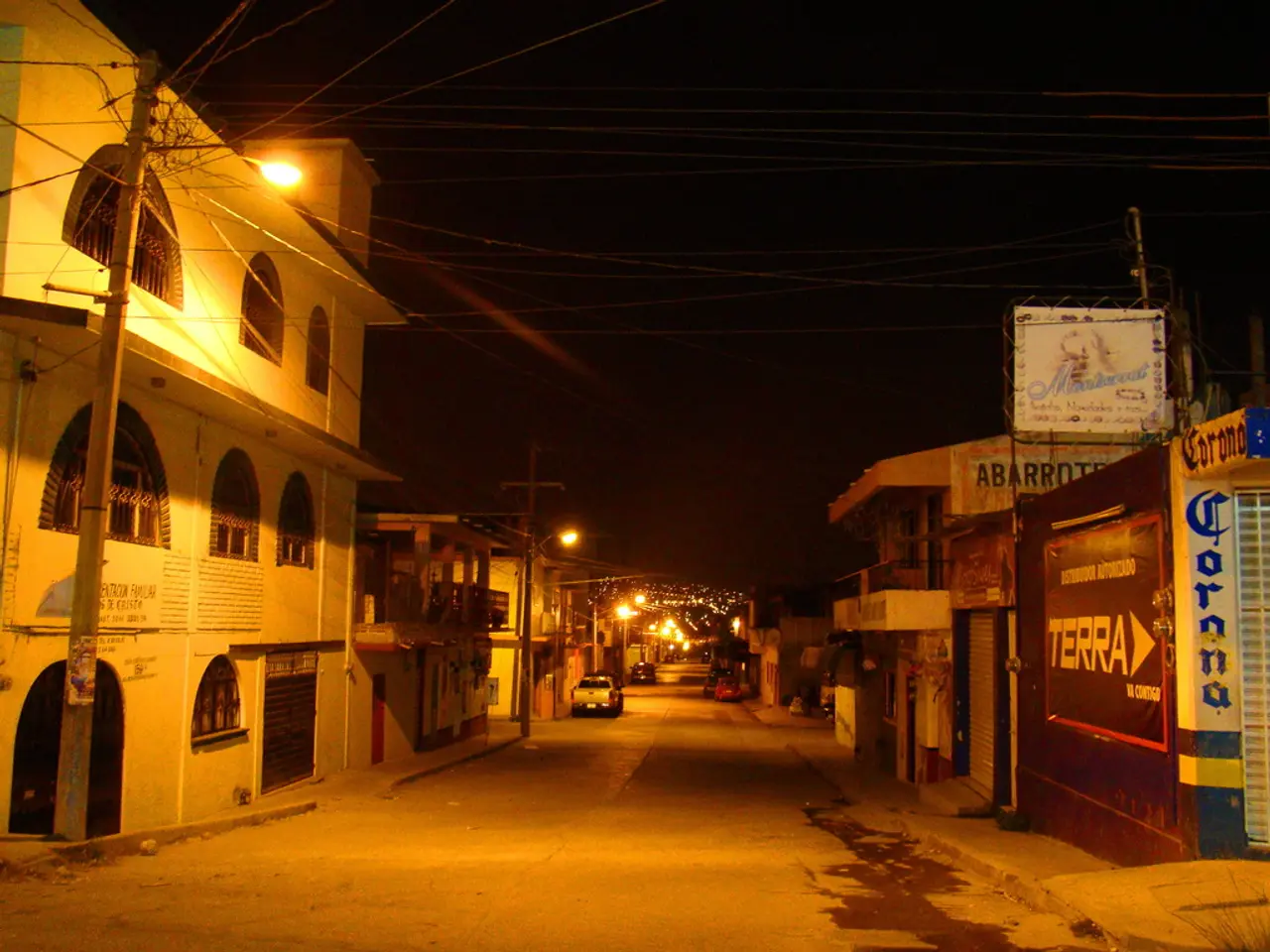Blockchain technology's impact on electric car charging in remote regions: Insights and transformations.
In a significant stride towards sustainable development, several innovative blockchain projects are actively driving the expansion of electric vehicle (EV) charging infrastructure in rural areas. These initiatives are transforming rural mobility, generating social, economic, and environmental benefits.
One such project is the EVMCSDLT Framework. This decentralized, secure, and privacy-protecting platform for EV charging payments includes Vehicle-to-Vehicle (V2V) energy trading. It facilitates secure offline payments and data sharing, reducing wait times and enhancing trustworthiness in EV charging infrastructure, particularly beneficial for sparsely covered rural areas where connectivity and reliability are challenges.
DeCharge Community EV Charging Network is another groundbreaking initiative. Launched in underserved suburban and rural areas, initially in the DMV region (Washington D.C., Maryland, Virginia), it offers a blockchain-enabled, community-focused EV charging network. DeCharge integrates blockchain-based payment systems with AI for load balancing and pricing optimization, ensuring affordable and predictable charging options. Their model includes tokenized incentives and community governance, promoting local ownership and participation rather than centralized control, enhancing accessibility and expansion in rural communities.
Emerging platforms also enable peer-to-peer (P2P) energy and charging services, allowing EV owners, local energy producers, and charging stations to trade electricity directly. This decentralized trading can empower rural areas by utilizing local renewable energy generation and reducing dependence on centralized grids.
These approaches demonstrate how blockchain supports the decentralization, security, efficiency, and community empowerment needed to expand EV charging infrastructure into less served rural areas. They optimize resource use, reduce latency and waiting times, and include incentives that engage local participants actively.
In addition to blockchain-specific projects, broader initiatives supported by simplified government funding and supportive policies provide an enabling environment for these innovative deployments to grow, particularly in rural contexts where traditional infrastructure rollouts lag behind.
| Project/Concept | Key Blockchain Innovation | Rural Impact | |-----------------------------|-----------------------------------------------|------------------------------------------| | EVMCSDLT | Secure, privacy-preserving V2V payments | Enables mobile & decentralized charging | | DeCharge Network | Blockchain payments + AI load balancing | Community governance, token incentives | | Peer-to-Peer Energy Trading | Decentralized trading of energy & charging | Empowers rural energy sharing & trading |
These projects collectively mark an innovative frontier where blockchain technologies and decentralized energy systems accelerate EV charging infrastructure adoption beyond urban centers to rural regions. The adoption of blockchain technology not only drives the adoption of electric vehicles in rural areas but also promotes citizen participation and local economic development.
As a result, the expansion of charging infrastructure through blockchain technology generates new sources of local income and employment in rural areas, contributing to their economic development. Blockchain technology is being used to revolutionize rural electric mobility by facilitating the installation and management of electric vehicle charging points. Open protocols facilitate interoperability, increasing the flexibility and scalability of the network.
Moreover, blockchain technology reduces economic and technical barriers, promoting equitable and sustainable access to charging infrastructure in rural areas. DeCharge uses the Solana network to create a platform where individuals and small businesses can install and operate charging stations, integrated into a collaborative and secure network. Smart contracts automate payments and rewards, reducing operational costs and simplifying management. Blockchain technology ensures security, transparency, and efficiency in the management of charging infrastructure.
However, only 14% of charging points are located in rural areas, despite them representing more than 80% of the territory, limiting access to cleaner and more sustainable mobility. Electric mobility becomes more affordable and appealing due to the elimination of intermediaries and simplified management. Blockchain not only drives the electrification of transportation but also contributes to the modernization and development of traditionally marginalized communities.
Various initiatives are leveraging blockchain technology to expand charging infrastructure in rural areas, such as DeCharge, which incentivizes user and small business participation through digital token-based reward systems. Innovative projects using blockchain technology are demonstrating the transformation of rural mobility, generating social, economic, and environmental benefits. Blockchain-based platforms offer intuitive digital tools for monitoring and remote maintenance of charging points.
Read also:
- Ford's Revisited Capri: A Contentious Revival for a Legendary Brand Name
- Rivian is developing a steering system without direct mechanical connection, along with rear wheel guidance (latest update)
- Driving 90 miles on I-35 in my fresh Tesla Model Y equipped with FSD, I witnessed the self-driving technology's striking impressiveness, prompting my cousin to contemplate purchasing one for his elderly father.
- Jeep Wrangler Owner Switches from 32" to 35" Tires, Tire Store Employee Suggests Upgrading Spare Mount on Rear Gate as Well







